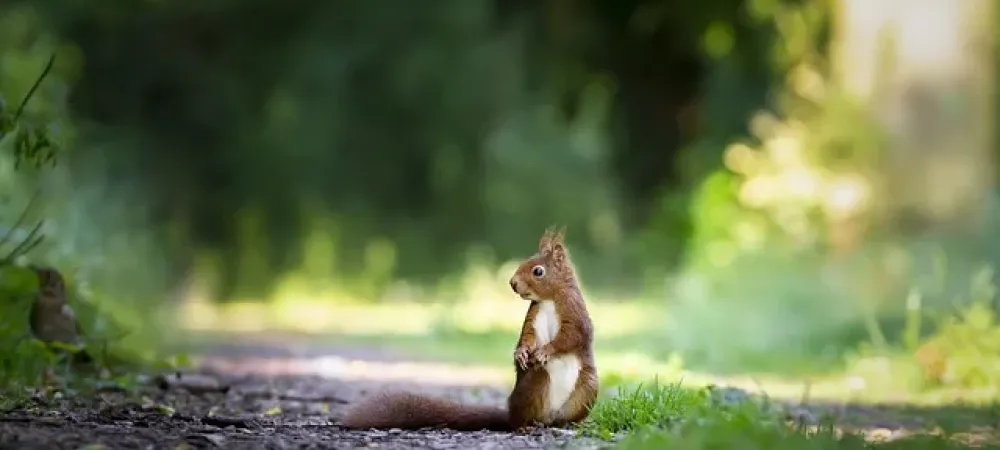How to Prevent Squirrel Damage

Most people don’t think about squirrels when they think about pests. After all, it’s extremely rare for these critters to actually invade the inside of your property, and most squirrels tend to steer clear of humans, and even fear them. However, squirrels are technically members of the rodent family, and like almost all rodents, their sharp claws and teeth are capable of doing a fair amount of property damage. People also forget that if you have a chimney or an attic, squirrels may actually try to make a nest in your home, especially during the wintertime, when it gets cold out. They can also carry diseases like rabies, meaning that even if they are only hanging around outside, you still don’t want too many of them on your property. Keep reading to learn how to prevent squirrel damage, and make sure to call our experts at Frame’s Pest Control for all your pest removal and treatment needs.
Identifying & Dealing with Squirrel Damage
There are different kinds of squirrels located all over the globe, with over 200 species you might spot depending on where in the world you live. As you would guess from their names, the Eastern Gray Squirrel is most common in the eastern United States, while the Western Gray Squirrel is most common in the west. What is common in most squirrel breeds is that the damage they tend to leave is very similar. Make sure to watch out for the signs, and do not hesitate to call a pest and wildlife control company if you notice evidence of squirrel damage on your property.
The top signs that your home or business is experiencing a squirrel problem are:
- Your plants and flowers have been uprooted
- There are bits of eaten fruits and nuts all around your property
- You’ve noticed small holes in multiple parts of your yard
- Your bird feeder(s) has been chewed on or damaged (especially the seed tray)
- There are wires in your home that have been chewed on
- There are vents in your home that have been damaged
- There are scratching or gnawing noises coming from your attic or chimney
- There is a musty smell coming from your attic or chimney (or elsewhere in your house)
- You have noticed animal urine or droppings
- There are holes in your roof
- You have noticed squirrels hanging out on the wires/other places outside your property
Some of these signs don’t just apply to squirrels; after all, rats and mice often try to make nests in people’s homes too, especially in the insulation. However, it’s good to always be on the lookout, whether we’re talking about a squirrel problem or a more common rodent infestation.
So, what can you actually do to prevent squirrel damage? For starters, you shouldn’t feed animals that come to your yard. A birdfeeder is fine (ideally one without sunflower seeds,) but if you are leaving food out for squirrels, rabbits, deer, or any other wildlife, you should stop immediately, as you are only going to invite more and more animals on to your property. You should also try to keep your branches trimmed as much as possible, ideally not letting any come within 20 feet of your actual building. We all know squirrels like to hang out in trees, but if a tree gets too close to your home, you are basically inviting squirrels to be guests in your attic. You should also continually have your roof repaired and keep up with any other necessary home maintenance. Remember, the more airtight your structure is, the better chance you have at keeping pests out.
Frame’s Pest Control Is Here for All Your Wildlife Removal Needs
At Frame’s, our skilled wildlife control technicians have everything you need to keep squirrels and a range of other nuisance animals off your commercial or residential property. You may think some of these critters are cute now, but trust us, you won’t be so happy when they’ve destroyed your yard or taken up residence in your attic. Fortunately, with over 125 years of collective experience and all the safe, efficient wildlife control and treatment options you need, you’ll be able to continue enjoying squirrels from afar—as in far away from your property, where they belong.
Call (419) 495-8283 now to learn more about squirrel control or other pest control options, or just use our contact form.
